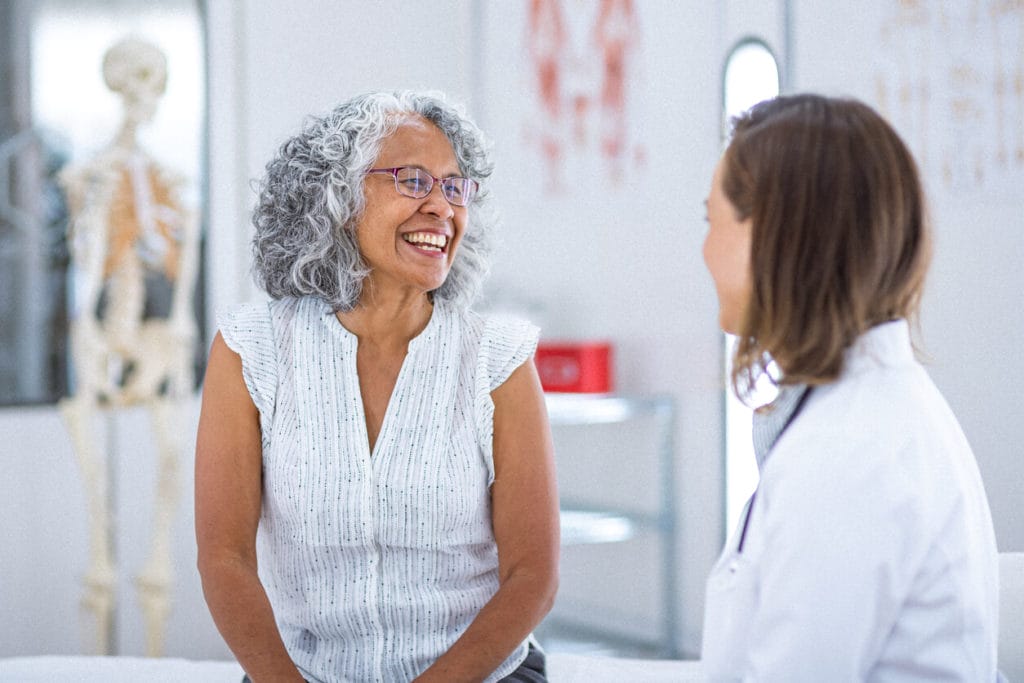
As we age, our bodies require more care and attention in order to stay healthy and function properly. This is why annual physical checkups are crucial for seniors.
These routine examinations not only provide a comprehensive evaluation of one’s overall health, but also allow doctors to catch potential issues before they become more serious. However, many seniors may overlook the importance of regular checkups or even avoid them altogether due to various reasons, such as financial concerns or fear of receiving negative results.
In this blog, we will dive into the importance of annual physical checkups for seniors and how they can greatly benefit their well-being in the long run.
Common Concerns About Annual Physical Checkups
It’s normal to have concerns about annual physical checkups. Here are some common worries of seniors and how to address them:
Fear of Bad News
Many people worry about receiving bad news during an annual physical checkup. Remember that early detection of health issues can lead to better outcomes. Facing health concerns head-on empowers you to take control of your health.
Cost of Visits
The cost of doctor visits can be a concern, especially for those on a fixed income. Check with your insurance provider to understand what’s covered. Many insurance plans cover annual physical checkups and preventive care.
Time and Convenience
Busy schedules can make it hard to find time for annual physical checkups. Look for doctors with flexible scheduling options and a clinic that offers transportation for elderly patients.
Why Annual Physical Checkups are Crucial for Seniors
Annual checkups are like a yearly tune-up for a car. Just like cars need regular maintenance to run well, our bodies need regular checkups to stay healthy. For older adults, these annual physical checkups can spot health issues before they become big problems.
Finding Hidden Health Issues
Some health problems don’t show symptoms until they’re serious. During a yearly checkup, doctors can find hidden issues like high blood pressure or diabetes.
Boosting Preventive Care
Yearly checkups improve preventive care by letting doctors find risk factors that aren’t obvious. A good checkup can uncover habits that might cause health problems, like a poor diet or lack of exercise.
Doctors can then offer advice and resources to help improve these habits for better health.
Updating Vaccinations and Screenings
Checkups are a great time for vaccinations and screenings. This includes flu shots, which are crucial for older adults, and screenings for things like cancer and cholesterol.
Staying current with these can prevent diseases or catch them early, when they’re easier to treat.
Reviewing Medications
Older adults often take medications. A yearly checkup is a good chance to review these medications with your doctor to make sure they’re still needed and don’t interact badly with each other.
Managing Chronic Conditions
If you have ongoing conditions like diabetes or heart disease, regular checkups are important. They let doctors monitor your condition and adjust treatments to keep it under control.
Building a Strong Relationship with Your Doctor
Regular annual physical checkups help build a strong relationship with your doctor. Consistent visits mean your doctor gets to know you better, leading to more personalized care.
This relationship encourages open communication about your concerns, making sure you get the support you need as you age.
What Happens During an Annual Physical Checkup?
Understanding what to expect during an annual physical checkup can make the process less intimidating. Here’s a breakdown of what usually happens:
General Health Assessment
The doctor specializing in elderly care will start by asking about your medical history and any changes you’ve noticed in your health. This general assessment helps the doctor understand your overall health and any concerns you might have.
Physical Examination
Next, the doctor specializing in elderly care will perform a physical exam. This typically includes checking vital signs like blood pressure, heart rate, and temperature. The doctor will also listen to your heart and lungs, check your reflexes, and examine your skin for any issue.
Lab Tests
Depending on your age and health history, the doctor specializing in elderly care might order lab tests. Common tests include blood tests to check for diabetes, cholesterol levels, and kidney function.
Finding a Primary Care Doctor Near You
If you’re wondering how to find a new primary care physician near you, you’re not alone. Here are some tips to help you:
Ask for Recommendations
Always start by asking trustworthy friends, family, or other healthcare professionals for recommendations. They can provide insights into doctors specializing in elderly care that they trust and why they recommend them.
Use Online Resources
There are many online resources to help you find a doctor specializing in elderly care. Websites like Zocdoc and the American Medical Association’s doctor finder tool can help you find primary care doctors near you accepting new patients.
Contact Your Insurance Provider
Your insurance provider can also help you find a doctor specializing in elderly care. They often have lists of covered doctors, including those who are accepting new patients. This can save you time and ensure your visits are covered by your insurance plan.
Annual Physical Checkups Near Me in Texas
Annual physical checkups are essential for maintaining good health as you age. They help detect hidden health issues, update vaccinations, and review medications.
At Palm Primary Care in Texas, we are committed to providing exceptional care tailored to the unique needs of seniors. Our dedicated team of doctors specializing in elderly care is here to support your health journey and provide personalized care that helps you thrive. We also offer transportation services for the convenience of our elderly patients.
To schedule your annual physical checkup with us, call today at (866) 840-7728 or use our patient portal. We look forward to serving you!






